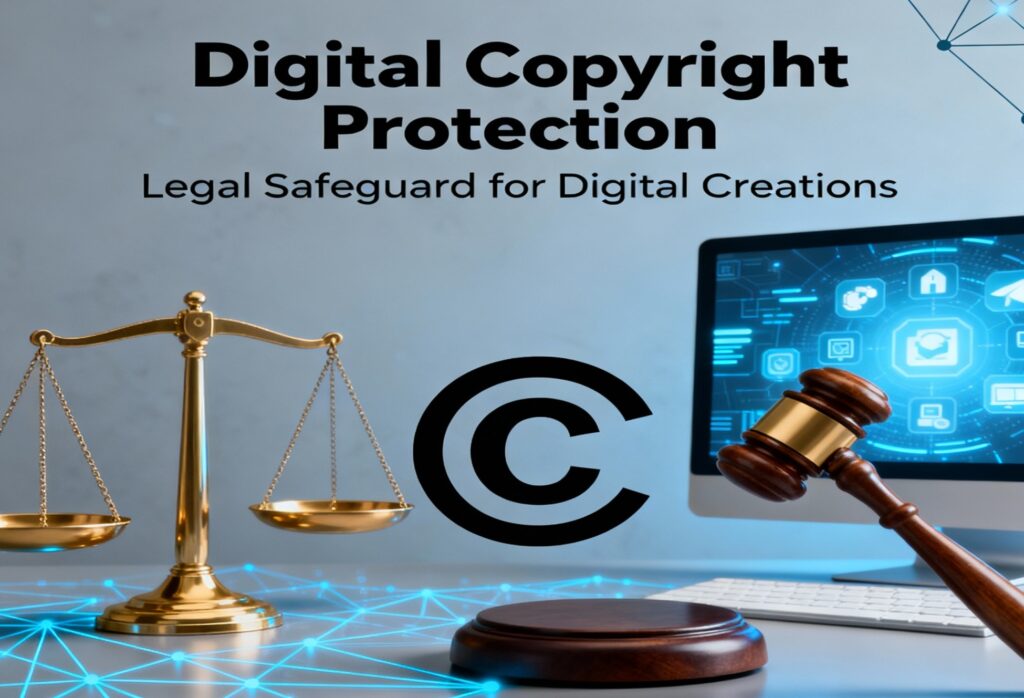Published On: 17th July 2025
Authored By: Pratham Ganesh Chavan
Adv Balasaheb Apte College of Law
Abstract
Water is the important part of our life everything around us including us is made up of water. A clean water resource is very important for the survival of human being.
Water pollution is a very serious environmental issue in India. It possesses a very serious risk to public health, environment, diversity and future development. In the last 24 years there is a rapid urbanization and industrialization in the country which has led to excess water pollution affecting the lives of public at a large, making a strong legal regulations and enforcement is a must to tackle the water pollution in India.
This Article examines the legal framework governing water pollution laws in India, focusing on important legislation, Judicial interventions and the challenges that are faced in implementation.
Types of Water Pollution
There are various types of water pollution: (1)
- Surface water pollution: refers to all bodies of water above the earths surface such as oceans, lakes, rivers any hazardous substance comes into contact with the surface water is called surface water pollution.
- Suspended Matter: refers to waste made by humans such as rubber, plastic which is disposed but does not break down for a very long period of time.
- Oil Spillage: Oil spillage is occurred because of large oil container ships carrying oil, intentionally dump oil or oil spill happens due to accident of the ship.
- Chemical water pollution: Chemical water pollution in most common water pollution caused due to industries releasing chemicals, effluents, untreated water or pesticides and fertilizers used for the agriculture industry
- Thermal Pollution: is also considered as a type of water, because thermal power plant uses water to cool down, the water which gets heated is directly released into river or sea which leads to dissolved oxygen in the sea or river.
Legal Frameworks Governing Water Pollution in India
India has a very well-established legal framework to address water pollution, consisting of constitutional provisions, judicial interventions & other enactments.
Constitutional Provision
The Indian Constitution does not mention the right to clean water, but various provisions provide a foundation for water pollution laws in India.
- Article 21: Protection of life and personal liberty no person shall be deprived of his life or personal liberty except according to procedure established by law. The Supreme court has interpreted the right to life which includes right to pollution free environment and right to clean drinking water. (2)
- Article 48A (Directive Principle of State Policy): Protection and improvement of environment and safeguarding of forests and wildlife. The state shall endeavour to protect and improve the environment and to safeguard the forests and the wildlife of the country. (3)
- Article 51a(g): To protect and improve the natural environment including forests, lakes, rivers & wildlife, and to have compassion for living creatures. (4)
Statutory Enactments
- The Water (Prevention and Control of Pollution Act), 1974
According to the constitutional provision ‘water’ is a subject in the State List. Consequently, the Water (Prevention and Control of Pollution) Act 1974, a central act, was enacted by virtue of article 252(1) of the constitution which confers power to the central/union government to legislate in a field occupied for the states, where two or more state legislatures consent to Central act as it is the constitutional requirement. The act also makes provision for setting up Central and State level boards to deal with water pollution and advice the state/ central government on water pollution issues. (5)
This Act applies to streams, inland water, sea or tidal water and also subterranean waters. It also provides mechanism to treat the effluent or maintain quality of waters. This act prohibits discharge and untreated water into rivers, streams and sea. (5)
The water act of 1974 is a very important legislation meant to deal with the measures necessary for prevention and control of water pollution. The water act also established two types of boards Central and state Pollution control board to see the water quality standards, conduct inspection, investigation enforce various ways to control pollution. (6)
Here are the important Objectives of act: – (6)
- To provide for prevention, and abatement of water pollution.
- To provide for the establishment of central and state water prevention and control of pollution boards.
- Granting powers to the boards for monitoring and enforcing water pollution control measures.
- Imposing penalties, fines, imprisonment for non-compliance.
Marine pollution – In India marine pollution is regulated under the Water (Prevention and Control of Pollution) Act 1974 and Environment Protection Act, 1986. Indian Coastal cities such as Bombay discharge untreated sewage of the whole city into the sea. (7)
To control the marine pollution effectively, the Territorial Waters, Continental Shelf, Exclusive Economic Zone and other Marine time zones act were passed. (7)
The Coast Guard Act 1978 was passed to protect the coast guard and it provides that coastal zone is to be protected from pollution and dumping of substances in the sea water. (7)
In respect of Oil spills in the ocean, civil, criminal liabilities are provided under the Merchant Shipping Act, 1958. (7)
- The Environment Protection Act, 1986 (8)
The Environment Protection Act (EPA) was enacted in response to the Bhopal Gas tragedy and it serves as an umbrella legislation. The act was passed by the Government of India under the article 253 of the constitution of India. It empowers the central government to
- Take necessary measure to protect and improve environmental quality.
- Set standards for wastewater discharge.
- Regulate hazardous substance and industrial effluents.
- Impose penalties for violations.
- Indian Penal Code, 1860 Replaced by Bharatiya Nyaya Sanhita (BNS), 2023
IPC contains provision that directly address water pollution,
- Section 277. Fouling water of public spring or reservoir – Whoever voluntarily corrupts or fouls the water of any public spring or reservoir, so as to render it less fit for the purpose for which it is ordinarily used, shall be punished with the imprisonment of either description for a term which may extend to 3 months, or fine with which may extend to five hundred rupees, or with both. (9)
- In the new act BNS the old IPC section is replaced by section 279 in BNS & fine has been increased from 500/- Rs to 5000/- Rs upper limit of imprisonment is also increased from 3 months to 6 months. (10)
- The National Green Tribunal Act, 2010 (NGT) (11)
The National Green Tribunal NGT was established to provide a specialized forum for environmental disputes. It has played a crucial role in enforcing water pollution laws through landmark judgements and controlling water pollution by measures. NGT was established because the normal courts lacked the expertise, and assessment of scientific data as having proper technical expertise helps in the speedy disposal of appeals.
- The Indian Fisheries Act, 1897 was enacted to prohibit and penalise killing of fish by using explosive or poisoning the water. (12)
Landmark Judgements & Judicial Interventions
- MC Mehta V. Union of India 1988 AIR 1115 (Ganga Pollution Case).
The supreme court, in response to a PIL filed by M.C Mehta under article 32 of the Constitution of India, observed that the river Ganga was highly polluted due to industrial effluents from tanneries, sewage discharge, half burned dead bodies, discharging ash of dead bodies The tanneries argued that they lacked the resources to install the treatment facilities, but court rejected this and said that financial constraints could not justify environmental damage. The court ordered non-compliant tanneries to cease operation until and unless they install pre-treatment machinery. The court also ordered the mahanagarpalika to issue directives for controlling pollution, including sewer pollution and prevention of disposal of dead bodies in the river. The court also passed directions to the central government for environment pollution mass awareness through slideshow, radio & T.V. Education – environment should be made compulsory subject in schools and colleges. (13)
- Vellore Citizens Welfare Forum vs Union of India & Ors 1996
The Supreme court addressed the conflict between environmental protection and industrial development. The petitioner filed a PIL under article 32 of the constitution against pollution in the river Palar caused by untreated affluents from tanneries in Tamil Nadu, which had rendered 35000 hectares of land unfit for cultivation. The court acknowledged the economic importance of tanneries but prioritized public health and environmental safety. It ordered tanneries to pay 10,000/- Rs fine to the affected families and restore the damage done to the environment. The tanneries who failed to acquire approval from the board were immediately closed. The court affirmed that Tamil Nadu Pollution Control Boards Total Dissolved Solids guidelines were in effect and must be followed by all companies. The establishment of common treatment facilities pollution control device was mandated. Creation of Green Bench the Madras High Court was directed to form a special Green Bench to handle the environment related matters. (14)
- Indian Council for Enviro-Legal Action v. Union of India 1989
In this case, Five factories in Bicchari Village, Udaipur, were producing Hyaluronic Acid (H-Acid) and discharging highly toxic effluents, including gypsum and iron based sludge. This led to severe Environmental damage contaminating ground water across 350 hectares rendering it infertile and the water from the well turned red and became unfit for use. Acting under section 144 of Cr.P.C, the subdivisional magistrate sought reasons for not shutting down the factories. The Indian Organization Indian Council for Enviro-Legal Action filed a writ petition before the Supreme court. Applying the principle of Absolute liability and referencing cases like Rylands v. Fletcher and the Bhopal Gas Tragedy, the court ordered the closure of factories and imposed Rs 4 crore fine in damages for ecological restoration. It also suggested establishing Green Benches in the State High Courts for Environmental Matters. (15)
- R.S. Lal Mohan vs The Executive Engineer (Wro) on 12 November, 2009
Writ petition under article 226 of the constitution filed by Dr. R.S. Lal Mohan who as agriculture scientist to highlight the issue of leasing out public tanks for Cultivation of lotus plants every year. The court ruled that cultivation of lotus plants in the public tanks leads to shrinking of surface area of the tanks and lakes suffers severe water pollution, which also reduces the oxygen in the lake, also sunlight doesn’t reach the under the lake and also leads to dying of fishes and other biodiversity to die. The court orderd The Executive Engineer (WRO) Public Works Department Kanyakumari District to stop leasing out the public water tanks for Lotus Cultivation. (16)
- C. Mehta vs Union of India & Ors on 10 May, 1996
M.C, Mehta filed PIL under article 32 of the constitution seeking a direction of Harayana Pollution Control Board to control the pollution caused by the stone crushers, pulverisers and mine operators in the Faridabadh & Balabagh area. The Court directed that there shall be no mining activities within 2km radius of the tourist resorts of Badkal and Suraj Kund Lake and with the help of NEERI( National Environment Engineering Research Institute) in its report recommended 200 meters green belt ti be developed at 1 km. All other concerned forest officer to start plantation of trees developing the green belts before monsoon. The court directed that no construction of any types shall be permitted now onwards within 5 kms radius of Badkal lake and Suraj Kund Lake. (17)
Challenges in Implementation
Despite having strong laws, India faces many challenges in controlling water pollutions.
- Lack of Enforcement: Regulatory agencies often fail to enforce pollution control norms due to corruption, lack of resources & political interference.
- Non-compliance of Industries: Many industries discharge untreated effluents into waterbodies due to weak monitoring mechanisms.
- Untreated sewage: A large amount of sewage and wastewater is discharged into river, sea, ocean without proper treatment.
- Groundwater Contamination: Overuse of fertilizers, pesticides & industrial waste disposal contribute to groundwater contamination.
- Public awareness and Participation: Limited Awareness among citizens regarding their rights and responsibilities regarding the water pollution laws in India.
Recommendation and Reforms.
To Strengthen water pollution laws in India following measures needs to be taken.
- Strengthening Regulatory Enforcement: Empower CPCB & SPCB with more resources, and stricter penalties for non-compliance.
- Enhancing waste water treatment plant: Increase investments for sewage and effluent treatment plants. Build new sewage treatment plants, upgrade existing sewage treatment plants.
- Participation of Community: Involve local community, general public and NGO in controlling water pollution activities and also spread awareness among the public.
- Judicial Activism: Intervention by courts to ensure accountability and compliance with environmental laws.
Conclusion
India has very strong legal framework to tackle water pollution but effective implementation remains a challenge. Strengthening Regulatory Enforcement, upgrading waste water treatment technology, participation of the community, generating awareness among the public, with continued legislative and judicial efforts, India can work towards a water pollution free environment ensuring long term ecological and public health benefits.
References
- Types of Water Pollution. (n.d.). Atlas Scientific. Retrieved March 22, 2025, from https://atlas-scientific.com/blog/types-of-water-pollution/?srsltid=AfmBOooVJtCeFwS1310Xcxb417Hg-BGrNlDkmR9jLXFn6Xn0n_LK7KAX.
- Article 21. (n.d.). Indian Kanoon. Retrieved March 22, 2025, from https://indiankanoon.org/doc/1199182/
- Article 48a. (n.d.). Indian Kanoon. Retrieved March 22, 2025, from https://indiankanoon.org/doc/871328/
- Article51A(g). (n.d.). Indian Kanoon. Retrieved March 22, 2025, from https://indiankanoon.org/doc/1644544/
- Tripathi, S. C. (2019). Environment Law: The Water (Prevention and Control of Pollution Act), 1974 (Seventh Edition). Central Law Publication. Page No 95.
- Tripathi, S. C. (2019). Environment Law: The Water (Prevention and Control of Pollution Act), 1974 (Seventh Edition). Central Law Publication Page No 94.
- Tripathi, S. C. (2019). Environment Law: Coastal Zone Management (Seventh Edition). Central Law Publication Page No 676 to 677.
- Tripathi, S. C. (2019). Environment Law: The Environment Protection Act, 1986 (Seventh Edition). Central Law Publication Page No 22 to 23.
- IPC section 277. (n.d.). Indian Kanoon. Retrieved March 22, 2025, from https://indiankanoon.org/doc/1374604/.
- BNS Section 279. (n.d.). BNS Sections. Retrieved March 20, 2025, from https://bnssections.com/section-279-bns/
- Tripathi, Dr. (2019). The National Green Tribunal Act, 2010 (Seventh Edition). Central Law Publication Page No. 645.
- Tripathi, S. C. (2019). Environment Law: Coastal Zone Management (Seventh Edition). Central Law Publication Page No 677.
- (2021, May 1). Important Case Laws on Environmental Law: 1. MC Mehta V. Union of India 1988 AIR 1115. Retrieved March 22, 2025, from https://lawbhoomi.com/important-case-laws-of-environmental-law/#M_C_Mehta_v_Union_of_India_2_Ganga_River_Pollution_Case
- (2021, May 1). Important Case Laws on Environmental Law: Vellore Citizens Welfare Forum v. Union of India. Retrieved March 22, 2025, from https://lawbhoomi.com/important-case-laws-of-environmental-law/#Vellore_Citizens_Welfare_Forum_v_Union_of_India1
- Indian Council For Enviro-Legal Action vs Union Of India And Ors. on 13 February, 1996. (n.d.). Indian Kanoon. Retrieved March 22, 2025, from https://indiankanoon.org/doc/1818014/
- R.S.Lal Mohan vs The Executive Engineer (Wro) on 12 November, 2009. (n.d.). Indian Kanoon. Retrieved March 22, 2025, from https://indiankanoon.org/doc/324683/
- Indian Council For Enviro-Legal Action vs Union Of India And Ors. on 13 February, 1996. (n.d.). Indian Kanoon. Retrieved March 22, 2025, from https://indiankanoon.org/doc/1818014/




